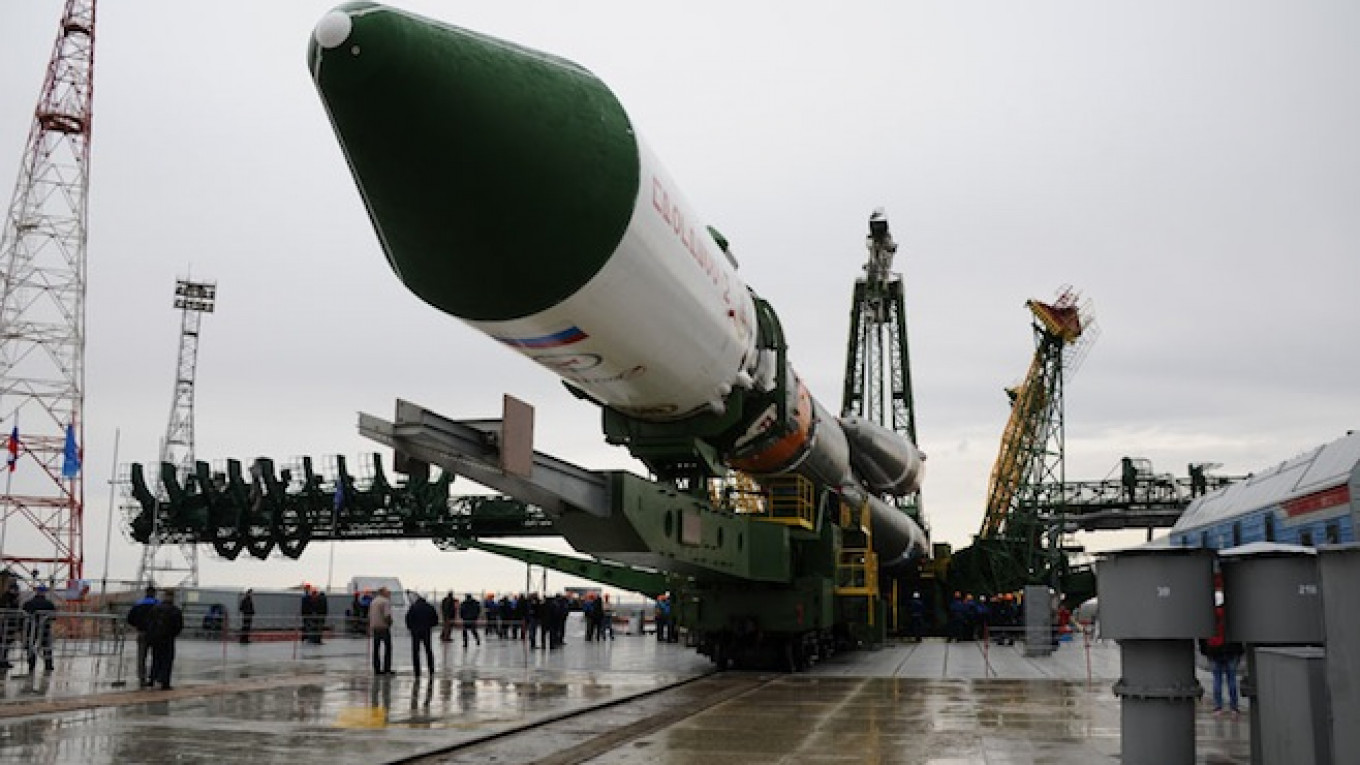The long-brewing crisis in Russia's space industry is getting worse. After numerous investigations and industry reform initiatives following a 2010 crash, rockets that had performed for decades without incident are still exploding and failing at alarming rates.
On Saturday, a Progress spaceship docked to the International Space Station failed to ignite its engines to boost the orbit of the outpost. A few hours later, a commercial launch Proton rocket experienced a catastrophic failure for the seventh time in five years.
The problems came within three weeks of the loss of a Progress resupply ship on its way to the ISS with valuable supplies for its international crew. So many problems in such a short period of time have cast doubts on the ability of the nation that pioneered space exploration to continue its march forward.
"You can compare it to the fall of the Roman Empire," said space industry analyst Pavel Luzin. "The Russian space industry is collapsing."
Global Workhorses
The decline of Russia's space program is a serious problem for the global space industry. According to Deputy Prime Minister Dmitry Rogozin, Russia controls 40 percent of the satellite launch market.
No less important: Since NASA retired its space shuttle fleet in 2011, the Russian Soyuz spacecraft has been the only means of transporting astronauts to the $150 billion International Space Station (ISS).
The failure of two different types of rockets — Proton for commercial satellites and Progress for ISS resupply missions — does not bode well for the future of Russia's position as a space technology leader.
While some might be tempted to call it quits on the space program, the government is unlikely to cancel it due to the international prestige it brings.
"It remains an important component of Russian state propaganda," said Yury Karash, a space policy expert at the Russian Academy of Cosmonautics, in e-mailed comments.
Finger Pointing
Russia's government has pushed for new rocket designs while failing to address more systemic problems. ?
Responding to concerns over the Proton rocket Monday, Rogozin said he would seek for the Soviet-era rocket to be phased out in favor of the more modern Angara rocket, news agency RIA Novosti reported.
Angara is a brand new rocket design unveiled last year. It is made by Proton's manufacturer, the Khrunichev State Research and Production Space Center.
But this ignores the fact that the older rocket designs are more reliable than the news designs, as their kinks have been worked out by decades of use.
Until 2010, Proton was considered to be the most reliable rocket in the world. Since then, it has crashed an astonishing seven times. Angara has yet to experience a crash, but has only ever flown twice.
Because of this, the problems facing the Russian space industry cannot be attributed to design flaws, but a general decline in how well the rockets are built. The government has fired several industry bosses and launched several major restructuring efforts, but rockets continue to explode.
Shifting the blame away from the government's failure to fix the state-owned industry, Rogozin pinned the spate of rocket disasters on "the moral decline of space industry managers," RIA reported Tuesday.
Rogozin warned on Tuesday that unless Russia's space industry drastically overhauls its production techniques, it risks losing its dominance of the global space industry to the U.S. space industry.
ISS Predicament
Though Russia may be overtaken by the United States in commercial launches, Russia's Soyuz spacecraft is the only means of reaching the ISS until U.S. firms like Boeing and SpaceX begin launching manned ships in 2017.
Soyuz may soon pose a problem too though, as it is essentially a manned version of the Progress that has experienced two setbacks in the last month.
If the next Progress launch, scheduled for early July, experiences a failure attributable to a component shared by Soyuz, it may force NASA and Roscosmos to consider abandoning the ISS — as was considered after a 2011 failure of a Progress rocket.
"The stakes put on this spacecraft are too great," Karash lamented. "If anything happens to it, Russia will be blamed not only for the loss (or harm) of the ISS crew," but for also abandoning the station.
Igor Lissov, an editor and technical expert from Russia's Novosti Kosmonavtiki journal, argued that from a technical standpoint, "there is no reason to doubt the reliability of these spacecraft."
According to Luzin, "Soyuz is a top priority for Russian authorities because it is a manned vehicle," and greater attention will be paid to their construction.
Contact the author at [email protected]
A Message from The Moscow Times:
Dear readers,
We are facing unprecedented challenges. Russia's Prosecutor General's Office has designated The Moscow Times as an "undesirable" organization, criminalizing our work and putting our staff at risk of prosecution. This follows our earlier unjust labeling as a "foreign agent."
These actions are direct attempts to silence independent journalism in Russia. The authorities claim our work "discredits the decisions of the Russian leadership." We see things differently: we strive to provide accurate, unbiased reporting on Russia.
We, the journalists of The Moscow Times, refuse to be silenced. But to continue our work, we need your help.
Your support, no matter how small, makes a world of difference. If you can, please support us monthly starting from just $2. It's quick to set up, and every contribution makes a significant impact.
By supporting The Moscow Times, you're defending open, independent journalism in the face of repression. Thank you for standing with us.
Remind me later.


